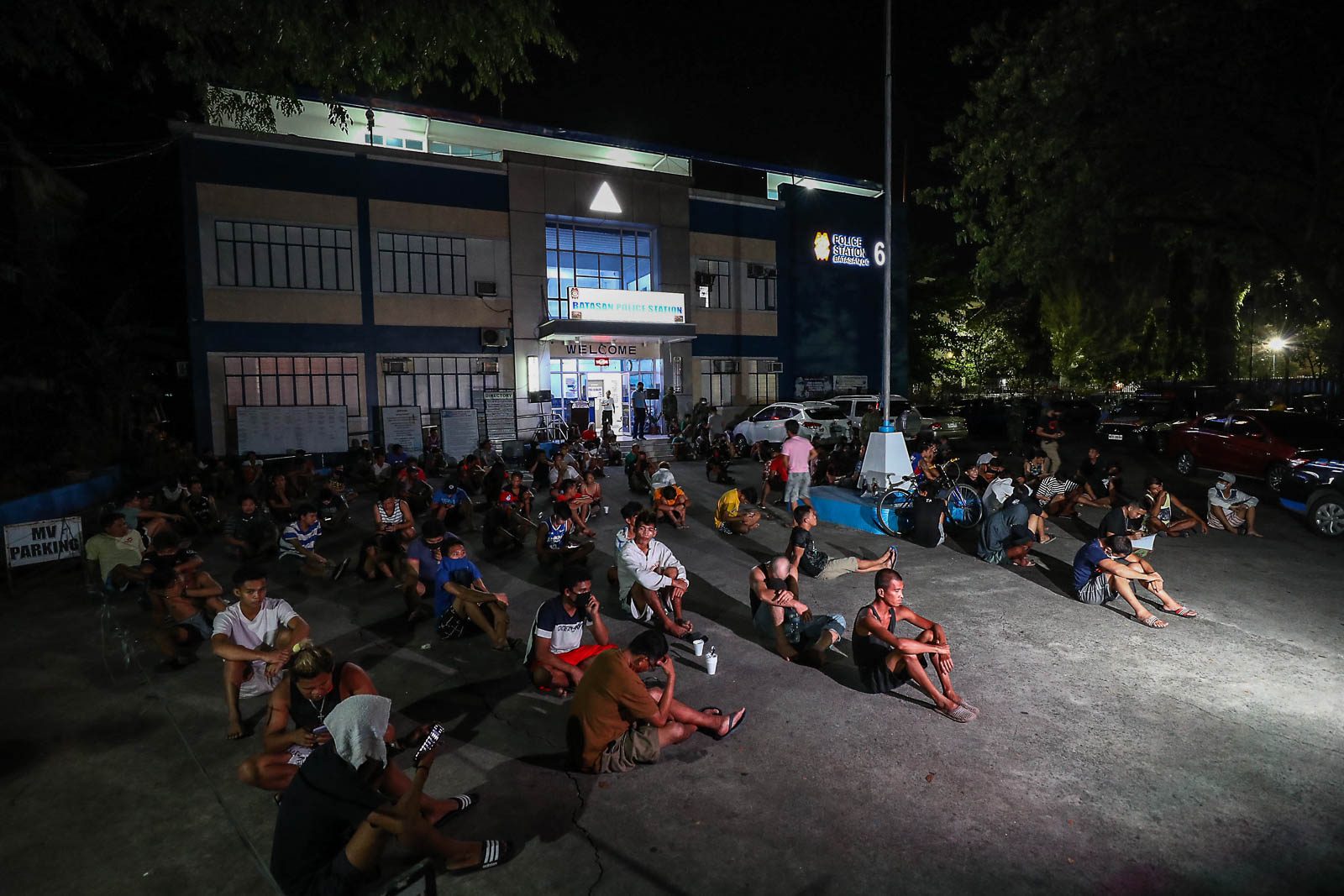SUMMARY
This is AI generated summarization, which may have errors. For context, always refer to the full article.

MANILA, Philippines – Under a state of public health emergency and in a lockdown to contain the coronavirus outbreak, human rights lawyers will admit restrictions to movement are warranted, but not 24-hour curfews.
“Ang 24-hour curfew ay outright denial of the right to travel and freedom of movement,” human rights lawyer Chel Diokno said.
(A 24-hour curfew is an outright denial of the right to travel and freedom of movement.)
National Union of Peoples’ Lawyers (NUPL) president Edre Olalia said 24-hour curfews are “unconstitutional for being arbitrary and unreasonable, and an overbreadth of police power unwarranted under the present and foreseeable circumstances.”
The issue is a little tricky.
For one, as Luzon is put under an enhanced community quarantine (ECQ), everybody is ordered to stay home and not go out. Thus, a 24-hour curfew is, effectively, already being implemented. This is the line of reasoning often used by the administration when asked.
“The total lockdown in Luzon is in effect a 24-hour curfew. No one leaves the house, unless covered by the exceptions/exemptions,” said Justice Secretary Menardo Guevarra, a senior member of the coronavirus Inter-Agency Task Force (IATF).
But as Guevarra himself said – there are exceptions.
The IATF guidelines allow people – or at least one member of the household – to buy food and medicine. In fact, food deliveries are still allowed to operate.
That is why, certain localities imposed curfews only on a limited window, like 8pm to 5am for some.
“Curfew impositions cannot be arbitrary, excessive or disproportionate. Measured by these standards, the 24-hour blanket curfews with vague or no exceptions or exemptions issued through ordinances by some local government units are open to serious legal challenge,” said Olalia.
Penalties
Muntinlupa City, for example, has put all of its residents under a strict 24-hour curfew, “unless he/she falls under the exemptions provided by laws or ordinance.”
Muntinlupa’s Ordinance No. 2020-074 imposes penalties on the curfew violators: blotter and cancellation of city benefits such as scholarships on first offense; blotter and withholding of relief goods and assistance on 2nd offense.
This is illegal, said Olalia, as penalties must have a direct relation to a crime as defined by a law.
“In this context, the ordinance issued by some local government units cancelling for instance scholarship benefits are legally infirm,” said Olalia.
Diokno also said that minors cannot be penalized for violating curfews.
“Ayon sa Comprehensive Juvenile Justice Act, bawal patawan ng penalty ang mga minor para sa curfew violation. Dapat dalhin sila sa kanilang bahay o i-turn-over sa kanilang magulang,” said Diokno.
(According to the Comprehensive Juvenila Justice Act, you cannot impose penalty on minors for curfew violation. They should be brought home and turned over to their parents.)
Section 57 of the Comprehensive Juvenile Justice Act says minors cannot be punished for status offenses. Status offenses include curfew violations under the said law.
Window hours
There is also confusion on window hours, as advisories are being passed around stating window hours when people can go out for their errands.
The Philippine National Police (PNP) has clarified it has not issued a window hour policy, but said Local Government Units (LGUs) may do so.
In Manila, cops fell for a bogus window hour advisory, which the PNP had to disown so it’s not used as basis for apprehensions.
Why can’t the IATF just outrightly ban window hours?
“I understand that further measures to ensure uniform and easy implementation are being discussed,” said Justice Undersecretary Markk Perete.
Who can impose curfews?
Olalia said LGUs may indeed impose curfews, like its barangay councils or city councils through valid ordinances.
Provincial boards, Congress, and the President can also do so, again, through valid orders.
Presidential Assistant for the Visayas Michael Diño released a memorandum “ordering” local government units (LGUs) in the Visayas island group to pass an ordinance that would impose a 24-hour “curfew” for students and senior citizens. (READ: Cebu province orders 24-hour home quarantine for students, elderly)
Interior Undersecretary Jonathan Malaya quickly said that Diño is not authorized to order LGUs.
“Only the ES (Executive Secretary) or the SILG (Secretary of Interior and Local Government) as alter ego of the President on local government matters has the legal authority to direct or enjoin LGUs,” said Malaya.
Diño made a clarification saying that the memorandum only “encourages” LGUs and not orders them.
Supreme Court Spokesperson Brian Keith Hosaka said that courts would accommodate petitions challenging ordinances, orders, and the like related to the implementation of measures in a state of public health emergency.
Olalia said that NUPL lawyers are “most certainly” open to filing petitions if the need arises, but he has a concern.
“But is filing cases physically an exempted task that overzealous village guards, barangay tanods, MMDA blueboys, Highway Patrol Group, Philippine National Police, Armed Forces of the Philippines, National Task Force to End Local Communist Armed Conflict (NTF–ELCAC), city ordinance, emergency powers restrictions on movement and travel allow?” Olalia said. – Rappler.com
Add a comment
How does this make you feel?
There are no comments yet. Add your comment to start the conversation.